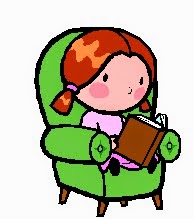(Today's post is by guest blogger, Delores Liesner, from Racine,
WI. I saw a Facebook post she wrote about teaching her kids to have a daily
quiet time with Jesus and thought it might be something you would enjoy as
well.)
Even into adulthood, it was a challenge for me, a rather hyper
personality, to sit still, even for a few minutes. I felt like a baby, taking
little steps to get to know God’s voice and His character. Quiet times spent in
prayer and reading my Bible calmed me, though, and I often spoke of them to our
toddler saying things like, “Mommy is happy because she talked to Jesus this
morning in her quiet time.” This way she understood that my behavior
and attitude was being guided and changed by a quiet time with God.
I wished I’d been taught this when I was a child, so I determined
that our children would know the peace of spending time with God. It was
actually quite simple.
A kitchen timer, a playpen, and a child-size picture Bible book
enabled teaching our toddler the self-discipline of having a quiet time.
I’d set the timer, first for one minute, announcing that we were going to have
a quiet time and talk to Jesus. I showed her my quiet-time book (my Bible) and
sat quietly in her view, reading until the timer went off. The time was increased
by a minute for five days, then it remained at five minutes for a week.
Next, I told my daughter that Mommy was going to have her quiet
time in her room. I turned on the timer and moved out of her line of
vision. As the daily quiet time increased to seven minutes, and finally
the fourth week, to ten minutes, I alternated being in and out of the room for
quiet times. When in the room, told her if she finished her quiet time
first, she could continue to play quietly till Mommy was done.
In addition to teaching respect for a quiet time, and imprinting
the importance of personal time with Jesus, our daughter quickly learned to
read and play quietly.
It took only a month, and I found our quiet times had more of an affect
than I imagined. One day I was irritable and three-year-old Laurie looked
up and asked, “Mommy, didn’t you have a quiet time today?”
Do your children have a quiet time? How did you start it? What
guidelines do you have in place for it?

